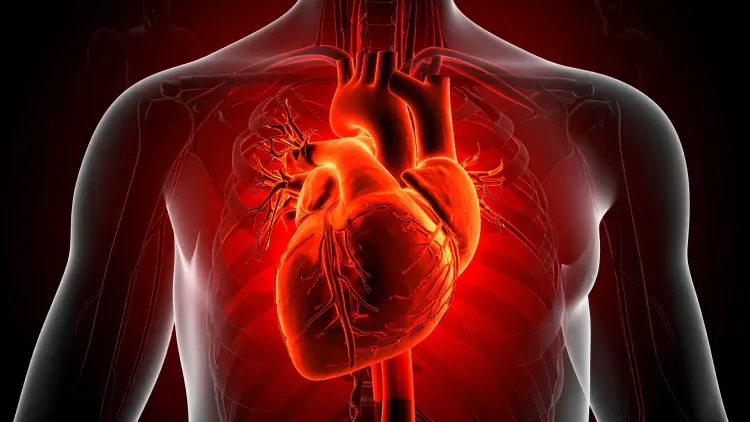Are Genes, Binge Drinking, and Stress Contributing to the Rise in Heart-Related Deaths Among Young Adults?

Synopsis
Key Takeaways
- Genetic factors play a significant role in heart disease.
- Binge drinking and high stress are critical lifestyle contributors.
- Early diagnosis through cascade screening can prevent premature heart attacks.
- Maintaining a healthy lifestyle is essential for heart health.
- Current treatments for elevated lipoprotein(a) are limited.
New Delhi, Aug 12 (NationPress) Experts are highlighting that a poor lifestyle characterized by inadequate sleep, binge drinking, and elevated stress, combined with genetic factors, is significantly influencing the alarming increase in heart-related fatalities in India.
Recent reports indicate a worrying trend in heart-related deaths, even among individuals who appear to be fit and lead a seemingly healthy lifestyle.
“It's crucial to note that not every case can be classified as a heart attack. Approximately 20 percent of heart-related fatalities in India can be attributed to certain genetic predispositions,” stated Dr. Rajiv Bhal, Director General of the Indian Council of Medical Research (ICMR).
He further pointed to binge drinking among youth, silent hypertension, elevated stress levels, insufficient sleep, and childhood obesity as contributing factors to this disturbing trend.
Moreover, Dr. Bhal noted that intense workouts in gyms, particularly for those with genetic vulnerabilities, could lead to an increased risk of heart-related deaths.
He recommended six essential practices for maintaining good health: regular physical activity, abstaining from smoking, improving sleep quality, adhering to a balanced diet, managing stress, and engaging in meditation.
Dr. J.P.S. Sawhney, Chairperson of Cardiology at a prominent hospital in the national capital, identified two genetic factors that are particularly prevalent in India and associated with cardiovascular disease: familial hypercholesterolemia and elevated lipoprotein(a).
The global incidence of familial hypercholesterolemia stands at approximately 1 in 250, while in India, it accounts for 15 percent of heart attacks in individuals under 40.
Conversely, elevated lipoprotein(a) levels affect 25 percent of the Indian population.
“We have noted that elevated lipoprotein(a) levels—exceeding 50 mg/dL—are prevalent among young heart attack patients and correlate directly with the severity of coronary artery disease,” Dr. Sawhney conveyed to IANS.
He elaborated on the diagnostic process for familial hypercholesterolemia, which ideally involves genetic testing.
“However, due to limited access to such testing throughout the country, we utilize the Dutch Lipid Clinical Network (DLCN) Criteria for diagnosis. Identifying familial hypercholesterolemia is vital not only for recognizing the index patient but also for implementing cascade screening among siblings and their offspring through fasting lipid profiles,” he noted.
If cholesterol levels are elevated, these individuals are considered carriers, prompting early treatment initiatives starting as young as two years of age to mitigate cholesterol levels. Otherwise, they face a heightened risk of premature heart attacks. Through cascade screening, we can significantly reduce the incidence of early heart attacks in familial hypercholesterolemia patients, as explained by the cardiologist.
Currently, there is no specific treatment for elevated lipoprotein(a).
“We are anticipating the results of ongoing trials on a specialized group of drugs, expected in 2026, which may offer targeted therapy. In the meantime, for individuals with high lipoprotein(a)—greater than 50 mg/dL—we advocate for stringent management of additional risk factors such as diabetes, hypertension, and high cholesterol,” the expert concluded.









